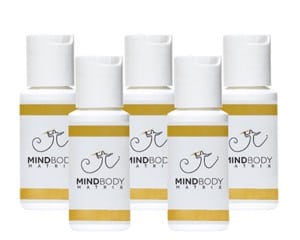
When you want better health, it’s not only what you eat that matters. When you eat makes a difference, too.
Fasting for healing has been used throughout history to restore the human body to health.
Regardless of your current health concern, you may find health benefits of intermittent fasting that apply to you.
What Is Intermittent Fasting?
Want to learn more on intermittent fasting from Ronan? Join his FREE masterclass now!
As the term implies, intermittent fasting requires you to fast for a specific length of time during each 24-hour period.
Many people find the 16:8 approach is preferable, because it follows their everyday schedules.
During the 8-hour period you can have normal meals and even low-calorie healthy snacks. After the last meal of the day, you will not eat.
Water and plain beverages are allowed throughout the 16-hour fasting period. It is a simple diet to follow.
After dinner, do not eat until breakfast the next morning. However, you can easily adjust the details to meet your specific needs.
Why And How Fasting May Be Healing For The Body
When you fast, your body is not digesting food. As the digestive process takes a considerable amount of energy, the energy can be used for other purposes.
Fatty deposits, dead cells, and other residue throughout the body will be eliminated as waste or used as fuel. Your cells will be replaced, and your digestive organs will be repaired.
Short-Term Fasting Improves Metabolism
Your metabolism benefits when you are not eating for short periods of time. The fat stored in your body is used for energy.
As more toxins and waste are eliminated when you are not eating, it also cleanses your internal organs. Both of these benefits result in a faster, more effective metabolism.
Join Intermittent Fasting Masterclass Now!
Intermittent Fasting Helps With Weight Loss

Along with the many health benefits of intermittent fasting, weight loss is a common reason for choosing periodic fasting. There are a number of ways it can help you reach your goals.
- Fasting affects your hormonal balance. When you do not eat, your insulin levels are decreased, and your norepinephrine levels increase. These hormonal changes accelerate fat loss.
- Fasting affects hunger hormones. You can feel full from eating less, and be satisfied longer. It can lower your risk of overeating.
- You can consume fewer calories. Unless you use the 8-hour window to gorge on high-calorie junk, the 16:8 fasting schedule can help you eat fewer calories. As lower insulin levels can reduce cravings, it will be easier to choose healthy foods and avoid snacks.
- Calories are used effectively. After you begin the fasting period, calories you have eaten during the day will not be stored as body fat. Instead, they will be used as a source of energy.
- Your body will burn fat instead of muscle. One complication of starvation diets is losing muscle while retaining fat. This does not occur with short-term fasting. You can retain lean muscle mass while shedding body fat.
Short-Term Fasting Fights Inflammation
Inflammation in the body can contribute to slow healing from wounds and infections, colds and other minor illnesses, and even serious medical conditions.
To stay healthy and heal properly, you need a strong immune system. Chronic inflammation can be caused by oxidative stress.
This can result in damage to healthy cells. Oxidative stress in the cells can be reduced with short-term fasting.
Fasting May Reduce Type 2 Diabetes
Fasting can reduce your risk of Type 2 diabetes. It can help diabetics manage their conditions, and in some cases may reverse diabetes.
- Fasting promotes blood sugar control. When you do not eat, your blood sugar levels are lower. Your body will use the excess glucose that is already in your system.
- Fasting reduces insulin resistance. While intermittent fasting decreases insulin levels, it also increases insulin receptivity. The insulin in your body will be more effective.
- For some people, weight loss can reverse diabetes.
Intermittent Fasting Stimulates Cellular Repair
Every part of the human body is made of cells. Healthy cells are essential for good overall health. When you fast, hormones in your body rejuvenate its cells.
Regeneration of cells is also boosted when fasting metabolizes fatty acids.
Intermittent Fasting Can Benefit Your Heart

There are many ways short-term fasting is good for your heart. It can strengthen your blood vessels, and reduce your risk of heart disease.
It can lower your blood pressure, so you have a lower risk of blood vessel damage and heart attack. It can repair dysfunctional cells and improve heart health.
Fasting can decrease oxidative stress and inflammation that harm your cardiovascular system. It can improve triglycerides and cholesterol.
It can decrease body fat, especially in the abdominal area. When your body fat percentage is improved, you may have a lower risk of cardiovascular disease.
Fasting Is Good For The Brain
Your brain can benefit from intermittent fasting. Brain structure and brain function can both improve. As fasting generates nerve cells, cognitive function can be enhanced.
Memory, thinking, and concentration can be better. As it reduces inflammation, it may reduce your risk of Parkinson’s Disease and Alzheimer’s Disease.
Intermittent fasting can benefit your mental health, too. It may increase your ability to deal with stress, and reduce your risk of depression and mood swings.
Intermittent Fasting Can Delay Aging And Extend Longevity
Interested in learning more from Ben on extending your healthy life and beauty? Watch his FREE Masterclass Now!
Fasting is not a miraculous fountain-of-youth, but it can help slow the signs of natural aging and you may even live longer.
Fasting provides anti-inflammatory benefits and cognitive benefits. It improves cholesterol, heart rate, and blood pressure. Some studies show it can improve bone health.
When new, healthy brain cells grow, it can reduce cognitive decline. This can improve your general quality of life.
The benefits to cells may result in a more youthful appearance. You can have healthier hair, nails, and skin. When cells regenerate, you can look fresher and younger.
When stronger, healthier cells grow, health benefits may include a longer lifespan. As the risk of age-related diseases is decreased, you can enjoy overall better health as you grow older.
Intermittent Fasting May Help Manage Chronic Conditions
A number of other chronic conditions may respond to short-term fasting. Some common examples include rheumatoid arthritis, multiple sclerosis, and asthma.
As inflammation is a contributing factor, individuals may experience reduced symptoms in their conditions.
Fasting And Growth Hormones
Human Growth Hormones are responsible for many health benefits. A moderate increase in HGH occurs during short-term fasting.
It increases metabolism, helps your body burn fat, improves muscle strength and growth, and helps repair cells.
HGH is sold as pills. They are used to aid weight loss, increase body strength, and promote a youthful appearance.
Intermittent fasting is a healthier way to achieve the same results. When it comes to health, the natural approach is the best approach!
Fasting Is Good For Gut Health

Many of the health benefits improve overall gut health. When you drink plenty of water during your fasting period, it eliminates bad bacteria from your gut while increasing its good bacteria.
Better Sleep Habits With Short-Term Fasting

You may have noticed it is difficult to sleep if you have recently had a heavy meal. The problem can be worse if it includes spices or caffeine.
You may be familiar with tossing and turning all night because something you ate or drank is keeping you awake.
If you choose fasting, though, these problems may be eliminated.
A fasting schedule that does not involve eating or drinking in the evening may result in healthier sleep habits. It can be easier to fall asleep at bedtime, and stay asleep throughout the night.
Fasting Is a Natural Cleanse

You may have heard of fad diets referred to as body cleanses. They range from questionable products to unusual drinks to starvation. Intermittent fasting is a healthy, natural way to cleanse your body.
Short-term fasting can eliminate harmful toxins and waste. Your liver, kidneys, and entire digestive system will work more effectively.
Fasting For Healing: Is It The Right Choice For You?
Some people should not make changes to their diets or eating habits before consulting with their doctors.
Women who are pregnant or breastfeeding, children, individuals with underlying health conditions, and persons who take medications for health issues should talk with their health care providers.
However, the wide range of health benefits of intermittent fasting make it ideal for most adults. It should not take long to become accustomed to your new eating habits.
As fasting can result in both short-term and long-term benefits, you can experience the benefits for the rest of your life.
Related Posts:
Detox Your Body with Superfoods: 7 Superfoods for Nutritional Cleansing
Why Gut Health Is Important and How It Affects Your Body
Diabetes Type 2 Management: Can Diabetes Be Reversed?
What Does It Mean To Be Fit and Healthy?
Mindvalley Membership – Is It Worth It? (my personal experience)






